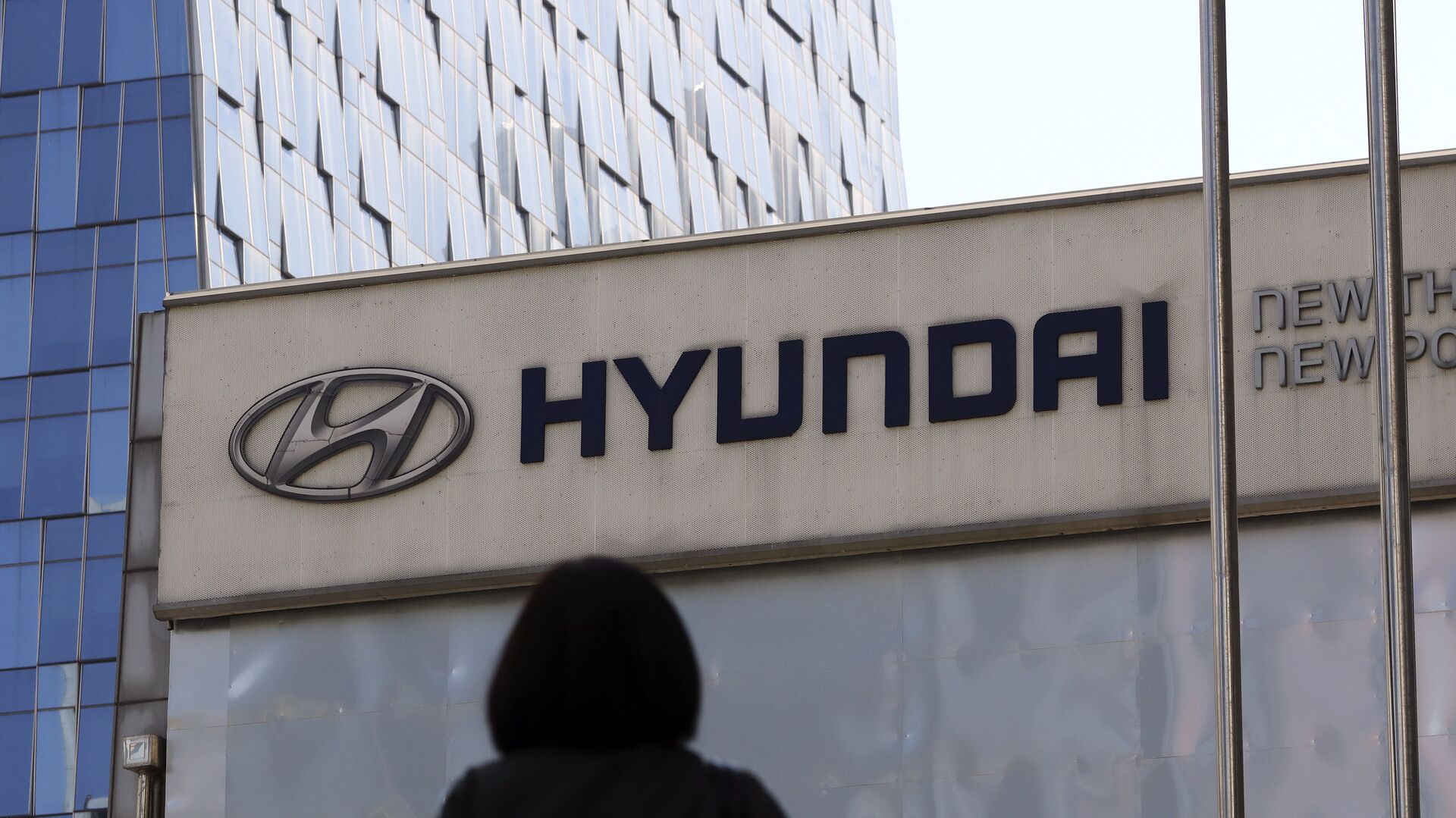https://sputnikglobe.com/20220919/seoul-slams-us-move-to-phase-out-subsidies-on-south-korean-evs-laments-chip-export-ban-1100979157.html
Seoul Slams US Move to Phase Out Subsidies on South Korean EVs, Laments Chip Export Ban
Seoul Slams US Move to Phase Out Subsidies on South Korean EVs, Laments Chip Export Ban
Sputnik International
South Korea's efforts to develop its domestic chip and electric vehicle industries have stumbled over the US' efforts to internalize production, promote... 19.09.2022, Sputnik International
2022-09-19T19:00+0000
2022-09-19T19:00+0000
2022-09-19T19:02+0000
world
south korea
chip
electric vehicles
us
https://cdn1.img.sputnikglobe.com/img/105651/32/1056513242_0:0:4068:2288_1920x0_80_0_0_45cbf0cb5cc8ea830bb76e54bc61af9c.jpg
The US moves against South Korean electric vehicle manufacturers, as well as effective “discrimination” against the industry despite promises of financial support, "provoked emotional and political repercussions", the country's Trade Minister Ahn Duk-geun has revealed in an interview with the Financial Times.Washington previously vowed to support the South Korean EV industry, but the recently adopted Inflation Reduction Act (IRA) excluded the country's automotive giant Hyundai, which has been building new factories in the US, from the subsidies applied to newly-bought electric vehicles. US President Joe Biden previously announced a $5.5 billion investment in Hyundai's EV and EV batteries plants during his May trip to South Korea.The US administration has been seeking ways to boost the domestic production of chips and electric vehicles amid supply chain disruptions and increased competition with China. EV production is considered especially important to Biden's green agenda. However, Hyundai's cars won't enjoy the $7,500 tax credit that can lure potential buyers in until their factory is built in 2025, as per the IRA.Ahn Duk-geun told the FT that the law, which prevents tax credits from being applied to EV cars produced outside of the US, Canada or Mexico, "caused big trouble" for Hyundai, which was making a decision to build a US factory based on a different expected market environment. The trade minister said that Seoul hasn't made up its mind on how to respond and if it will try to solve the issue through the World Trade Organization.The minister clarified that the US acknowledged the problem and has been working with South Korea to try and "minimize the damage," but there have been no results as of yet.At the same time, South Korea is also struggling to deal with another US-imposed restriction affecting the country's economy – the export of chip technology, Ahn Duk-geun said. At the core of the problem, the US ban on the sale of advanced chips to China and the manufacturing of such chips there. But Korean companies have semiconductor facilities built in China and have been affected by the move.Ahn Duk-geun pointed out to the FT that the policy recently enacted in the US Chips Act banned recipients of Washington’s funding, such as South Korean semiconductor companies, from expanding their chip manufacturing capacities in China for ten years. The minister explained that the key problem is a grey zone between low-end chips manufacturing that was not affected, and the high-end chip manufacturing in China that concerns US officials. He noted that it was hard to distinguish which middle-tier technology fell under the limitations imposed by Washington on its ally.
https://sputnikglobe.com/20211125/us-company-makes-electric-vtol-craft-that-resembles-ufo-could-transport-people-superman-style-1091025116.html
south korea
Sputnik International
feedback@sputniknews.com
+74956456601
MIA „Rossiya Segodnya“
2022
Tim Korso
https://cdn1.img.sputnikglobe.com/img/07e6/03/0d/1093831826_0:0:216:216_100x100_80_0_0_e3f43a960af0c6c99f7eb8ccbf5f812c.jpg
Tim Korso
https://cdn1.img.sputnikglobe.com/img/07e6/03/0d/1093831826_0:0:216:216_100x100_80_0_0_e3f43a960af0c6c99f7eb8ccbf5f812c.jpg
News
en_EN
Sputnik International
feedback@sputniknews.com
+74956456601
MIA „Rossiya Segodnya“
Sputnik International
feedback@sputniknews.com
+74956456601
MIA „Rossiya Segodnya“
Tim Korso
https://cdn1.img.sputnikglobe.com/img/07e6/03/0d/1093831826_0:0:216:216_100x100_80_0_0_e3f43a960af0c6c99f7eb8ccbf5f812c.jpg
south korea, chip, electric vehicles, us
south korea, chip, electric vehicles, us
Seoul Slams US Move to Phase Out Subsidies on South Korean EVs, Laments Chip Export Ban
19:00 GMT 19.09.2022 (Updated: 19:02 GMT 19.09.2022) South Korea's efforts to develop its domestic chip and electric vehicle industries have stumbled over the US' efforts to internalize production, promote US-based companies and compete with China.
The US moves against South Korean electric vehicle manufacturers, as well as effective “discrimination” against the industry despite promises of financial support, "provoked emotional and political repercussions", the country's Trade Minister Ahn Duk-geun has revealed in an interview with the Financial Times.
Washington previously vowed to support the South Korean EV industry, but the recently adopted Inflation Reduction Act (IRA) excluded the country's automotive giant Hyundai, which has been building new factories in the US, from the subsidies applied to newly-bought electric vehicles. US President Joe Biden previously announced a $5.5 billion investment in Hyundai's EV and EV batteries plants during his May trip to South Korea.
"President Biden himself said 'thank you very much, [Hyundai] chairman Chung, I will not let you down' — that was the exact statement, and it was widely broadcast in Korea. Then when this new law was enacted and signed by President Biden, [it became clear that] that company was being discriminated against," Ahn Duk-geun said.
The US administration has been seeking ways to
boost the domestic production of chips and electric vehicles amid supply chain disruptions and increased competition with China. EV production is considered especially important to Biden's green agenda. However, Hyundai's cars won't enjoy the $7,500 tax credit that can lure potential buyers in until their factory is built in 2025, as per the IRA.

25 November 2021, 19:00 GMT
Ahn Duk-geun told the FT that the law, which prevents tax credits from being applied to EV cars produced outside of the US, Canada or
Mexico, "caused big trouble" for Hyundai, which was making a decision to build a US factory based on a different expected market environment. The trade minister said that Seoul hasn't made up its mind on how to respond and if it will try to solve the issue through the World Trade Organization.
"We don’t want to aggravate the problem by adopting similar retaliatory measures. But you never know, if the situation gets really serious, we are flexible too," he said.
The minister clarified that the US acknowledged the problem and has been working with South Korea to try and "minimize the damage," but there have been no results as of yet.
At the same time, South Korea is also struggling to deal with another
US-imposed restriction affecting the country's economy – the export of chip technology, Ahn Duk-geun said. At the core of the problem, the US ban on the sale of advanced chips to China and the manufacturing of such chips there. But Korean companies have semiconductor facilities built in China and have been affected by the move.
"Our semiconductor industry has a lot of concerns about what the US government is doing these days," the minister said.
Ahn Duk-geun pointed out to the FT that the policy recently enacted in the US Chips Act banned recipients of Washington’s funding, such as South Korean semiconductor companies, from expanding their chip manufacturing capacities in China for ten years. The minister explained that the key problem is a grey zone between low-end chips manufacturing that was not affected, and the high-end chip manufacturing in China that concerns US officials. He noted that it was hard to distinguish which middle-tier technology fell under the limitations imposed by Washington on its ally.




